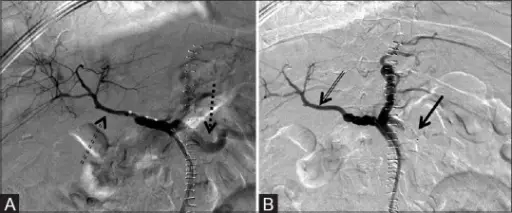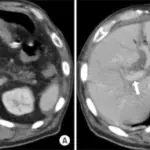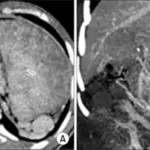Hepatic artery compromise is the blockage in blood flow to the liver.
What is the Pathology of Hepatic Artery Compromise?
The pathology of hepatic artery compromise is:
-Etiology: The cause of hepatic artery compromise is drugs or medication.
-Genes involved: None.
-Pathogenesis: The sequence of events that lead to hepatic artery compromise may include thrombosis, emboli, intragenic cause, vasculitis, and structural arterial abnormalization.
-Histology: The histology associated with hepatic artery compromise shows hepatic parenchymal necrosis.
How does Hepatic Artery Compromise Present?
Patients with hepatic artery compromise typically affect males and females present at the age range of 30-50. The symptoms, features, and clinical findings associated with hepatic artery compromise include may be asymptomatic or cause right upper quadrant pain, fever, nausea, vomiting, and jaundice. Leukocytosis and a high aminotransferase level are common.
How is Hepatic Artery Compromise Diagnosed?
Hepatic artery compromise is diagnosed using vascular imagining.
How is Hepatic Artery Compromise Treated?
Hepatic artery compromise is treated using anticoagulant medications, and fibrinolytic therapies.
What is the Prognosis of Hepatic Artery Compromise?
The prognosis of hepatic artery compromise is fair depending upon the cause.



